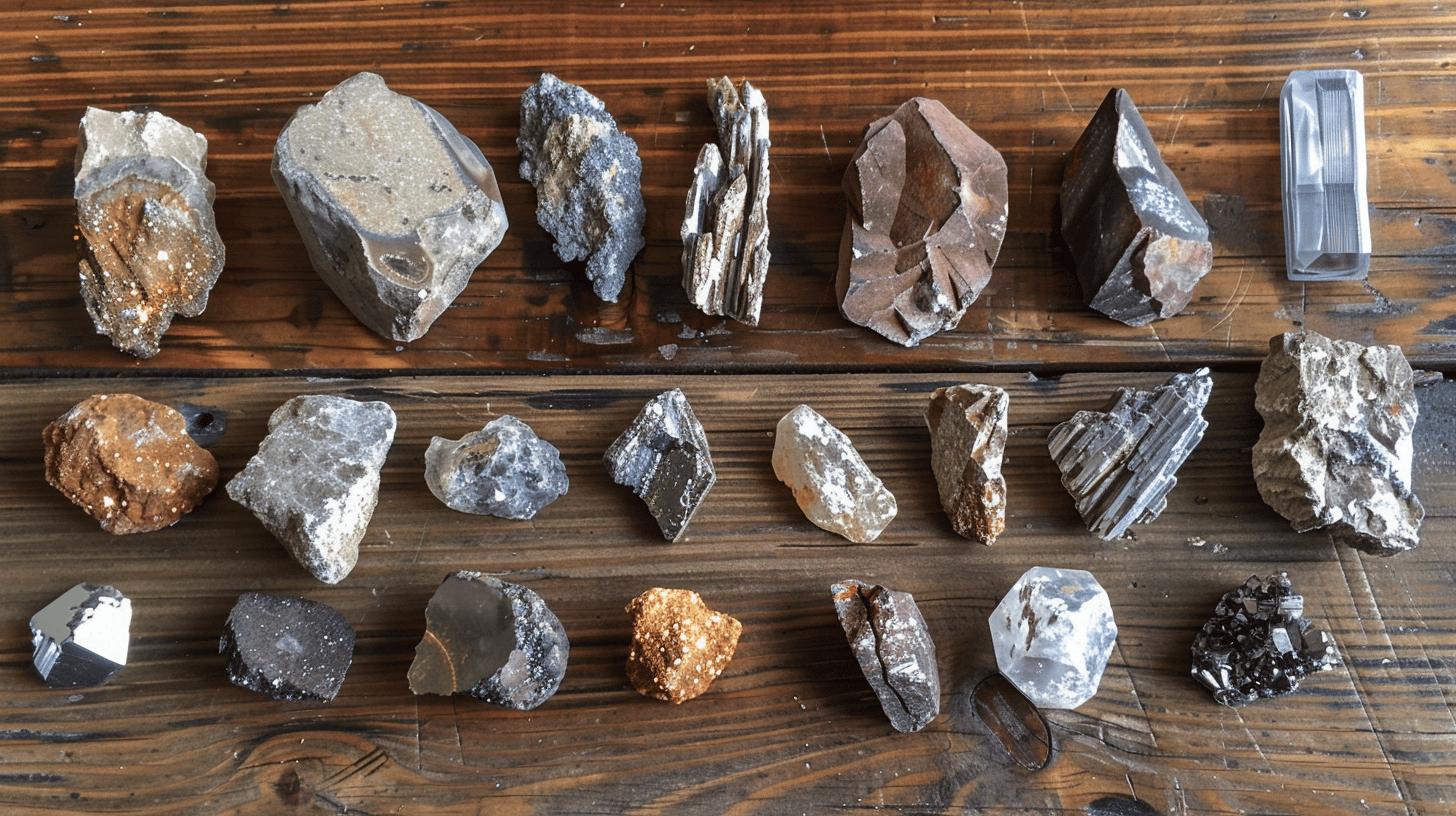Are lithium ore suppliers the unseen champions of our greener future? As the world pivots toward sustainable energy solutions, these suppliers are pivotal in unlocking lithium's potential. This article zeroes in on esteemed industry leaders, such as Livent Corporation, whose influence extends across continents. We'll unveil a roster of key players whose supply networks ensure the stability of this increasingly vital resource. The quest for efficiency in energy storage lies at the heart of their operations, underscoring their indispensable role in supporting a sustainable energy transition.
Key Lithium Ore Suppliers and Their Global Reach
Lithium ore suppliers play a pivotal role in the global market, providing the essential raw materials needed for the burgeoning energy storage and electric vehicle industries. The significance of these suppliers extends beyond simple resource provision; they are the backbone of the supply chain that supports the transition to renewable energy solutions. The United States stands out as a key player, hosting several leading suppliers that are instrumental in shaping the future of energy. These companies not only supply lithium ore but also drive innovation in processing and production technologies, enhancing the efficiency and sustainability of lithium extraction. Their strategic positioning and operational capabilities make them indispensable in meeting the escalating global demand for lithium, driven by the proliferation of electric vehicles and renewable energy technologies.
-
Livent Corporation: Based in the United States, Livent is recognized for its extensive lithium extraction and processing capabilities, making significant contributions to the energy sector.
-
Albemarle Corporation: Also a U.S.-based company, Albemarle is a leader in lithium production, with operations spanning multiple continents, including South America and Australia.
-
Sociedad Química y Minera (SQM): Situated in Chile, SQM is one of the largest lithium producers globally, capitalizing on the rich lithium deposits of the Atacama Desert.
-
Tianqi Lithium: Operating out of China, Tianqi is a major player in the lithium industry, with significant investments in Australian lithium projects.
-
Ganfeng Lithium: Another Chinese company, Ganfeng is renowned for its comprehensive lithium product offerings and global supply network.
These suppliers not only fulfill the increasing demand for lithium but also play a crucial role in promoting global sustainability. By adopting environmentally responsible mining and production practices, these companies contribute to reducing the carbon footprint associated with lithium extraction and processing. Their commitment to sustainability is evident in their efforts to minimize environmental impact, enhance resource efficiency, and invest in research and development for cleaner technologies. As the world leans towards a greener future, these suppliers are at the forefront, supporting the transition by ensuring that the supply of lithium remains steady and sustainable, thereby enabling the widespread adoption of clean energy technologies.
Understanding the Lithium Ore Market and Its Demand
The surge in demand for lithium is primarily fueled by the rapid expansion of energy storage solutions, particularly lithium-ion batteries. These batteries are pivotal in powering a range of applications, from consumer electronics like smartphones and laptops to electric vehicles and large-scale renewable energy storage systems. As the global shift towards sustainable energy intensifies, the necessity for lithium as a core component in battery technology magnifies. In addition to energy storage, lithium ore is integral in the production of lithium hydroxide and lithium carbonate, which are vital for various industrial processes. These compounds are foundational in manufacturing ceramics, glass, and lubricants, further bolstering the demand for lithium in diverse sectors.
| Market Segment | Demand Driver |
|---|---|
| Automotive | Electric vehicle battery production |
| Electronics | Rechargeable batteries for consumer devices |
| Renewable Energy | Grid storage solutions |
Looking ahead, the demand for lithium is poised to accelerate as market trends continue to evolve. The automotive sector, in particular, is set to be a major growth driver as governments worldwide implement policies to reduce carbon emissions, encouraging the adoption of electric vehicles. Advancements in battery technology, including increased energy density and reduced costs, are expected to further stimulate demand. Moreover, the renewable energy sector's expansion, necessitating efficient grid storage solutions, underscores the critical role of lithium. Projections indicate a sustained upward trajectory in lithium demand, with market dynamics shaped by the convergence of technological innovation and environmental imperatives.
Evaluating Lithium Ore Suppliers: Criteria and Considerations

Evaluating lithium ore suppliers is crucial for any organization looking to secure a reliable and high-quality source of this essential resource. The growing demand for lithium, driven by advancements in battery technology and the push towards renewable energy, necessitates a strategic approach to selecting suppliers. A thorough evaluation ensures that potential partners not only meet the technical requirements but also align with the buyer's values and long-term goals. This process safeguards against supply chain disruptions and supports sustainable business practices, ultimately contributing to a more resilient and efficient operation.
Key criteria for evaluating lithium ore suppliers include industry certifications, which verify the supplier's compliance with international standards and regulations, ensuring quality and safety. Supply capacity is another critical factor, as it determines the supplier's ability to meet the buyer's volume and delivery needs consistently. Customer reviews provide insights into the supplier's reputation, reliability, and service quality, offering valuable information from previous or current clients. Together, these factors form a comprehensive framework for assessing potential suppliers, enabling informed decision-making and risk mitigation.
Procurement strategies play a significant role in establishing successful supplier relationships. Developing strategic supplier agreements can offer numerous benefits, such as securing competitive pricing, ensuring consistent supply, and fostering collaborative partnerships. Such agreements often encompass long-term contracts that provide stability and predictability, allowing both parties to plan and invest in future growth. By prioritizing strategic procurement and establishing strong supplier agreements, buyers can optimize their supply chain operations, enhance operational efficiency, and support sustainable practices in the rapidly evolving lithium market.
Applications and Industrial Uses of Lithium Ore
Lithium ore serves as a cornerstone for the production of rechargeable batteries, which are ubiquitous in modern technology. Lithium-ion batteries, favored for their high energy density and lightweight properties, power a vast array of devices, from smartphones and laptops to electric vehicles. The ability of these batteries to store significant amounts of energy in a compact form makes them integral to the advancement of portable electronics and the burgeoning electric vehicle market. The demand for lithium-ion battery production is a primary driver of lithium ore extraction, with ongoing research focused on enhancing battery efficiency, longevity, and sustainability.
- Ceramics: Lithium is used to improve the strength and thermal shock resistance of ceramic products.
- Glassware: Lithium compounds help in reducing the melting temperature and improving the thermal expansion of glass.
- Cement: Lithium additives enhance the setting and hardening properties of cement.
- Industrial Greases: Lithium-based greases are prized for their high-temperature stability and water resistance.
Lithium hydroxide, derived from lithium ore, plays a critical role in various applications, particularly in the battery industry. Its use in the production of lithium-ion batteries is predominant due to its efficiency in stabilizing the battery's electrochemical environment, thereby enhancing performance and cycle life. Beyond batteries, lithium hydroxide is utilized in the manufacturing of air conditioning systems and as a catalyst in specific polymer and chemical reactions. Its versatility and effectiveness make it a valuable component across different industrial sectors.
Lithium carbonate, another key derivative of lithium ore, is vital in numerous industrial processes. It is extensively used in the production of ceramics and glassware, where it improves product durability and thermal properties. Additionally, lithium carbonate acts as a flux in cement production, optimizing the material's strength characteristics. In the realm of pharmaceuticals, lithium carbonate is employed as a treatment for bipolar disorder, illustrating its diverse applicability. The ability to convert lithium ore into such versatile compounds underscores its importance in driving innovation and efficiency across multiple industries.
Navigating the Lithium Ore Supply Chain and Logistics
Efficient supply chain logistics are crucial for the effective management and distribution of lithium ore. Given the global demand for lithium, particularly from industries relying on advanced battery technologies, logistics play a pivotal role in maintaining a steady supply. The intricacies of the supply chain involve meticulous coordination to ensure that lithium ore reaches processing facilities and end-users without delays, which could disrupt production schedules and increase costs. Effective logistics strategies help mitigate these risks by optimizing transportation routes, storage solutions, and inventory management, thereby enhancing the overall efficiency of the supply chain. This is essential not only for meeting current demand but also for scaling operations in response to future market needs.
-
Mining and Extraction: The initial stage involves extracting lithium ore from deposits using advanced mining techniques.
-
Processing and Refinement: The raw ore is processed to extract lithium compounds, such as lithium carbonate and hydroxide.
-
Quality Control: Rigorous testing ensures that the refined lithium meets industry standards for purity and quality.
-
Packaging and Storage: The refined products are securely packaged and stored to maintain their integrity during transit.
-
Export and Distribution: Finally, logistics networks facilitate the export and global distribution of lithium products to various markets.
Export logistics present distinct challenges, primarily due to the need for timely delivery across diverse geographical regions. Factors such as customs regulations, transportation infrastructure, and geopolitical considerations can complicate the logistics process. To overcome these challenges, companies employ solutions such as leveraging advanced tracking technologies, establishing strategic partnerships with local carriers, and optimizing inventory levels to ensure readiness for market fluctuations. By adopting these strategies, lithium suppliers can enhance their global distribution capabilities, ensuring that their products reach customers efficiently and reliably, thus maintaining a competitive edge in the rapidly evolving global market.
Final Words
The intricate dynamics of the lithium ore market highlight the critical role of key suppliers, like those in the United States such as Livent Corporation, in supporting the global energy transition. This influence is mirrored in the escalating demand driven by lithium’s pivotal use in energy storage, underscoring its importance in the modern industrial landscape.
Evaluating suppliers involves a keen consideration of certifications and strategic partnerships, ensuring reliability and sustainability. The diverse applications of lithium, particularly in rechargeable batteries and various industrial uses, emphasize its versatile industrial benefits.
Mastering the supply chain logistics for lithium ore ensures effective global distribution, vital for maintaining market equilibrium. As a result, the understanding of these elements can empower a lithium ore supplier to navigate and thrive in this dynamic market. This, in turn, fosters continued innovation and sustainability, promising a robust future for the lithium industry.
FAQ
Q: Who are the leading lithium ore suppliers globally?
A: Leading lithium ore suppliers include Livent Corporation and Ganfeng Lithium among others. These companies play a critical role in supporting the energy sector and promoting sustainability.
Q: Who is the largest producer of lithium ore in the world?
A: The largest producer of lithium ore in the world is presently Australia, with companies like Albemarle and Tianqi Lithium operating major extraction operations.
Q: What company is the biggest supplier of lithium?
A: The largest supplier of lithium is Ganfeng Lithium, a key player recognized for its extensive global supply network and substantial market influence.
Q: Where can lithium ore be sold?
A: Lithium ore can be sold to international buyers across numerous markets, including automotive, technology, and renewable energy sectors, through platforms like ExportHub and direct industry connections.
Q: What is the price of lithium ore per ton?
A: The price of lithium ore per ton varies significantly based on market demand and purity levels but is generally influenced by lithium market trends and supply chain logistics.
Q: Who are the lithium ore buyers in the USA and Europe?
A: In the USA, lithium ore buyers include major automotive and battery manufacturers. In Europe, companies that focus on renewable energy and electronics comprise the primary buyer base.


